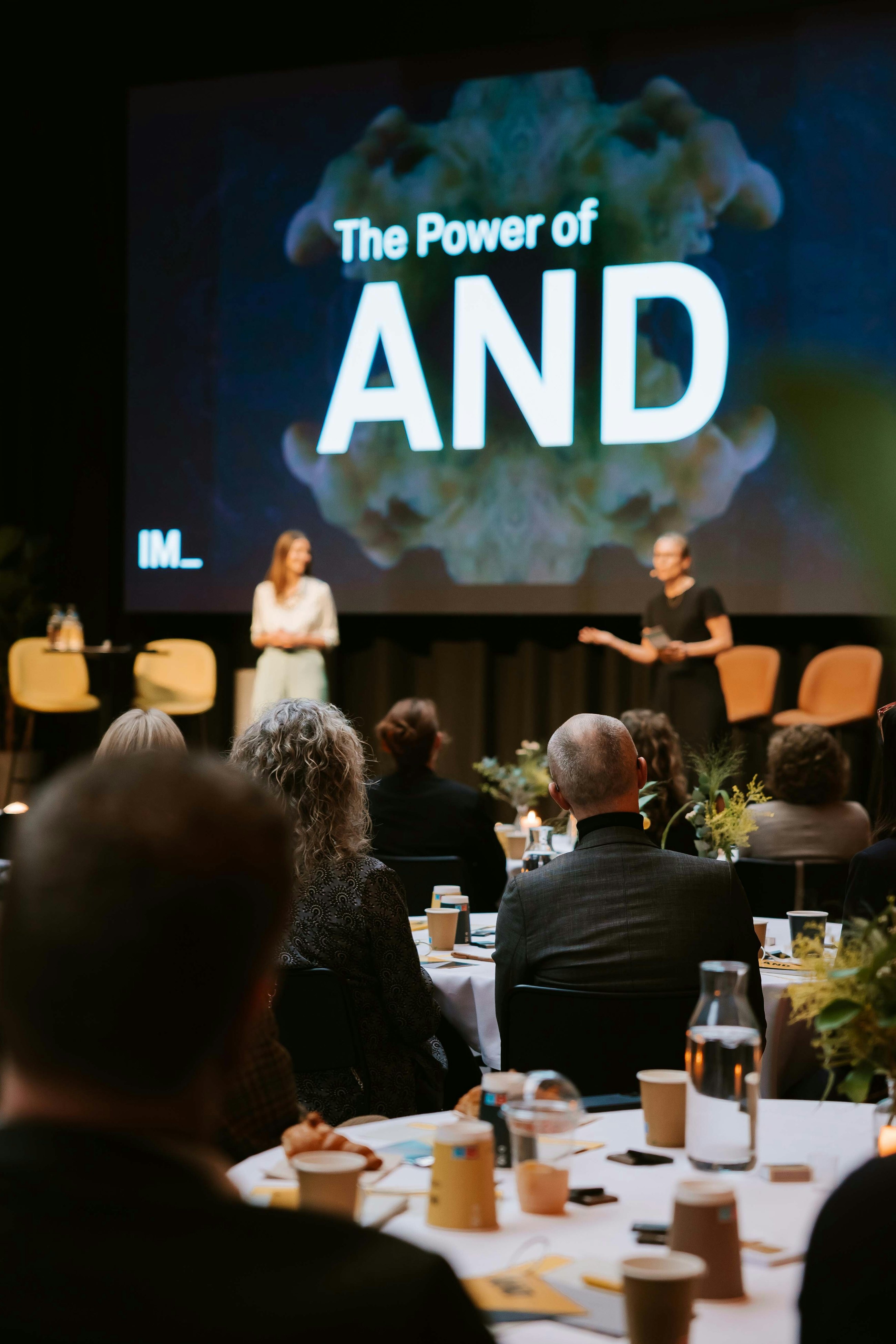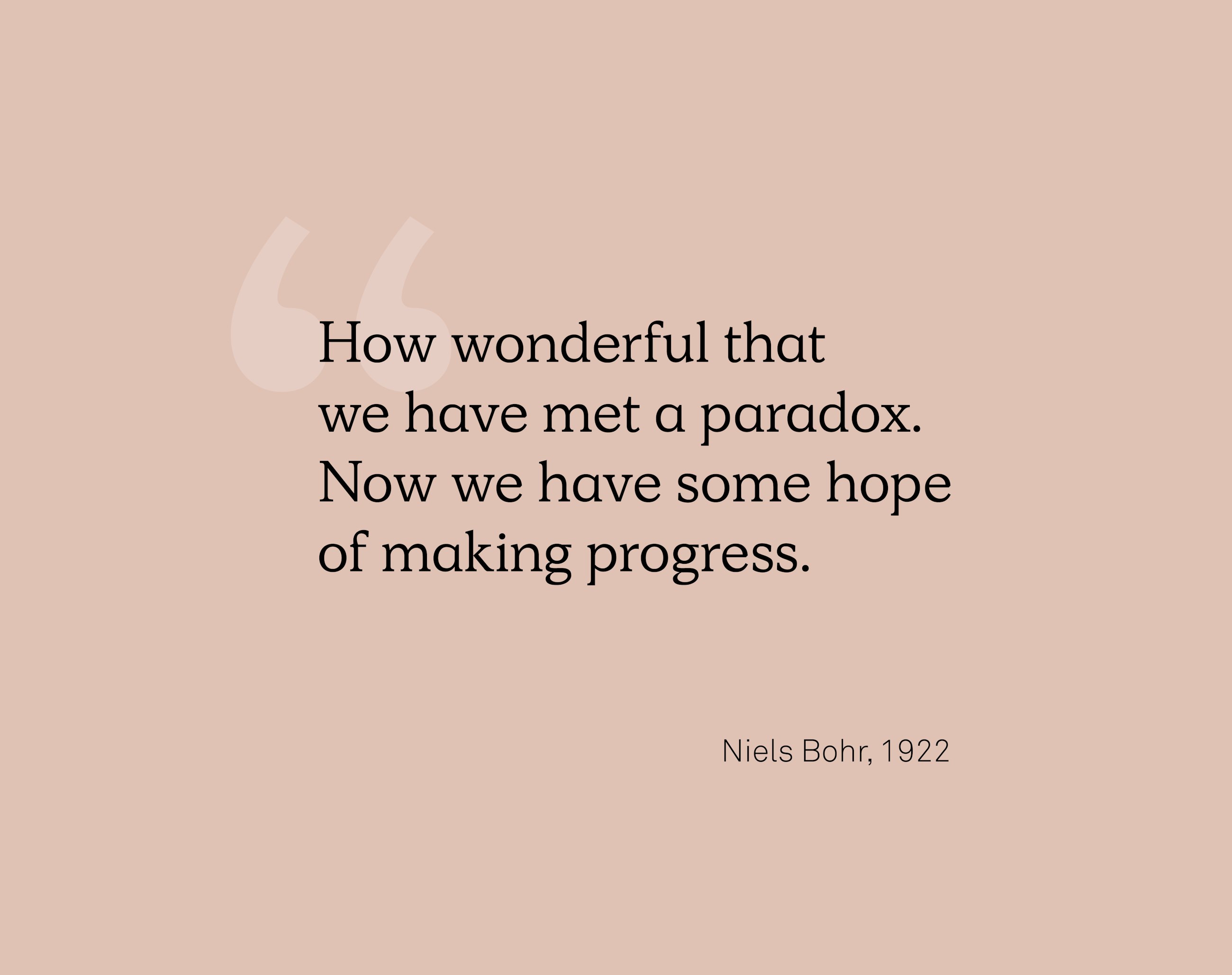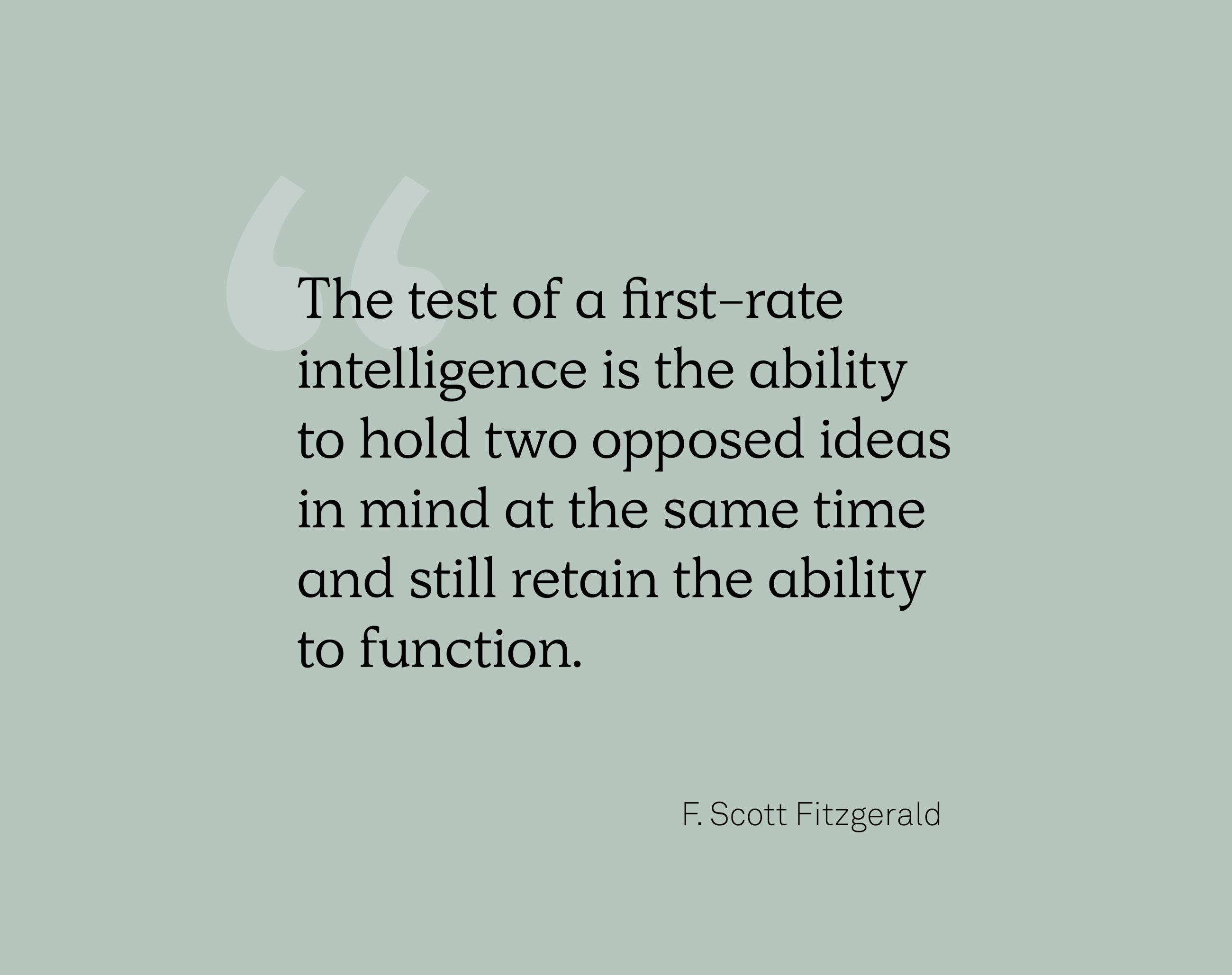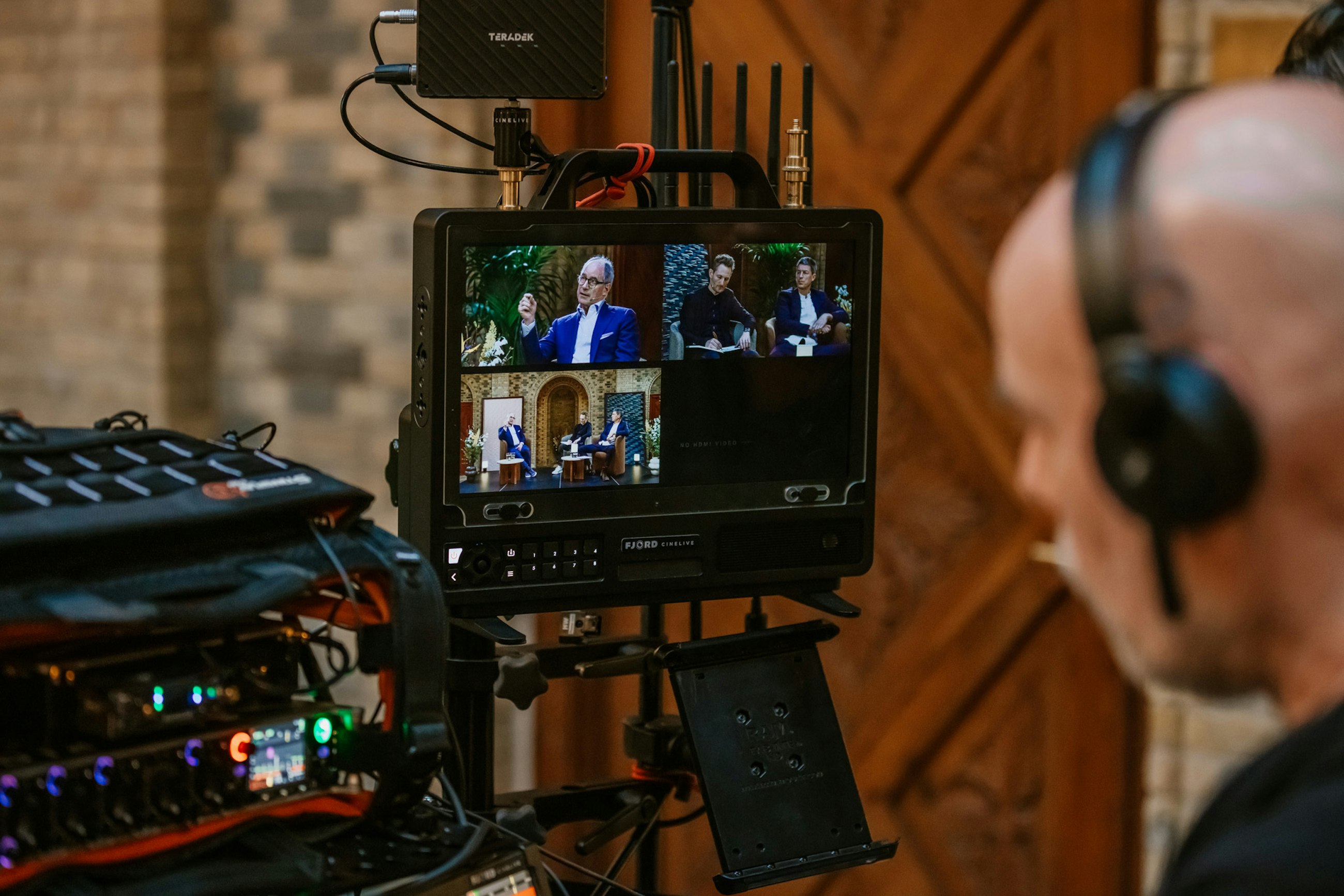Discover the power of and
27 June 2023
The shift
– Welcome to the “Paradise of Paradoxes”
The world is rich on grand systemic challenges; climate, biodiversity, inequality, globalisation, just to mention a few on top of the agenda of both society and most businesses today. And on top of these systemic challenges, most organisations are constantly tackling emerging crisis situations.
This is not a new situation. For decades, we have had to deal with how to become faster, more entrepreneurial and agile in response to these emerging challenges.
However, a subtle shift has taken place over the past decade. One that creates new types of tensions, changing the context in which we make choices and decisions as leaders. A shift that for some has formed a new reality where the ability to hold seemingly opposing perspectives without collapsing into an unambitious choice or compromise has become a strategic leadership discipline – we call it the “Paradise of Paradoxes”.
is the place to be.
Bono, singer U2
“The shift” has three main drivers that we as leaders must learn to embrace and navigate:
- Societal challenges are business challenges
Societal challenges now directly influence business challenges. Organisations must have a view on climate, biodiversity, inequality and globalisation. - Complex challenges are paradoxical
Societal challenges are paradoxical in nature, they are political, ethical, diverse and wicked, meaning that different insightful people will have different opinions on the issues, creating new tensions. - Complex problems are not “fixed at the top” – they belong to everyone
The new tensions associated with “the shift” are different in nature. Because of their magnitude, complexity and persistence, everyone must understand and take measures to solve the tensions.
Paradoxes, dilemmas and tensions
Tensions and paradoxes within our fields of expertise
Some paradoxes are global, some tensions cross-expertise. However, some tensions and paradoxes influence individual expertise areas more than others. Here are the the tendencies we currently see within our fields of expertise.
The opportunity
– Choice making as a key capability in future-fit organisations
To make better choices, we need to embrace and understand the core paradoxes as well as the underlying tensions in these problems.
Tackling business challenges and at the same time actively taking part in solving our toughest societal challenges, business leaders of tomorrow must master the art of turning discomfort into ambition and tension into creativity.
At its heart, this holds an invitation for leaders to embrace a “both/and” mindset to navigate persistent and seemingly contradicting paradoxes: profit and purpose, unity and autonomy, equality and diversity, growth and net zero, thinking and doing, top down and rolled up, innovation and optimisation.
By recognising and understanding the underlying tensions and paradoxes in each problem, complexity will give way to a radical simplicity and an even better solution awaits. Problems can be complicated. Solutions cannot.
The power of and
We believe that three drivers are important to develop great choice-making capabilities
- Integrative thinking
We believe that great leaders are integrative thinkers. They naturally gravitate towards exploring different options before making choices, and they refrain from framing challenges as either/or but rather both/and. - Distributed choice making
Tensions will emerge everywhere across the organisation, meaning that we need more people to think, not fewer. We must build problem-solving and choice-making capabilities at scale. - Courageous conversations with a both/and mindset
The future belongs to hybrids – masters of “integrative thinking” – the ones holding the ability to face the tension of opposing ideas instead of choosing one at the expense of the other.
Are you a hybrid thinker?
Great choices rest on our ability to embrace the power of and in everything we do.
We are looking for people who understand that purposeful change comes from working together with those who think differently. People who relish the opportunity to solve worthwhile problems by bringing thoughtfulness next to action and pairing “why” with “what”.
Without and, we would not be able to be both totally focused and completely open-minded.
Become a part of Implement and discover the power of and.
Join usGlobal souls with local roots
At Implement, we see an important role in helping organisations navigate the new paradoxical reality. We are curious about the new challenges, and we want to explore answers to them.
Exploring “Making Great Choices” with two great thought leaders
We have set out to explore “Choice making in an era of paradoxes” together with leading management thinkers in this field, Roger Martin and Professor Wendy Smith, both best-selling authors and Harvard Business Review contributors.
In autumn 2023, we hope that you will join us in this journey when we host our Thought Leaders 2023 event and get curious about the critical shifts in a leader’s mindset in an era of crisis and social tension.
Wendy Smith
Wendy Smith is the author of the 2022 bestseller “Both/And Thinking”, a professor of management and the faculty director of the women’s leadership initiative at the University of Delaware. She earned her PhD from Harvard Business School where she began her intensive research on strategic paradoxes – how leaders and senior teams effectively respond to contradictory yet interdependent demands.
Working with executives globally, she has been aa noted keynote speaker and teacher for audiences around the world. Her research, published among the top journals in the field, has received numerous awards, including an award for being the 1 per cent most cited research in the field.
Listen to Wendy on capitalising on tension in conversationRoger
Martin
Martin
Roger Martin is the author of the best-selling book “Playing to Win – How Strategy Really Works”, which won the Thinkers50 Best Book Award, and he was recently appointed the third most influential management thinker by Thinkers50.
He is the former dean of the Rotman School of Management at the University of Toronto, and during his 15 years as dean he transformed the institution from a small Canadian B-school to a global educational player.
Implement Consulting Group has worked closely with Roger Martin for several years, starting with his appearance as a guest speaker at Implement Thought Leaders in 2011 and continuing with the training of Implement’s consultants in his approach to strategic thinking.
Listen to Roger on Changing conversations in strategy





